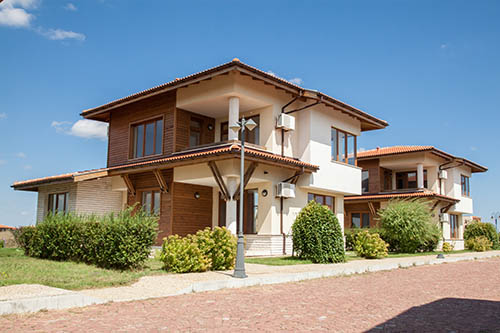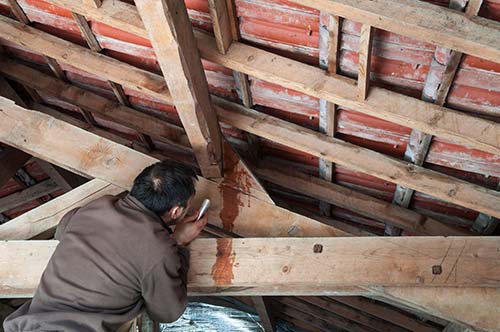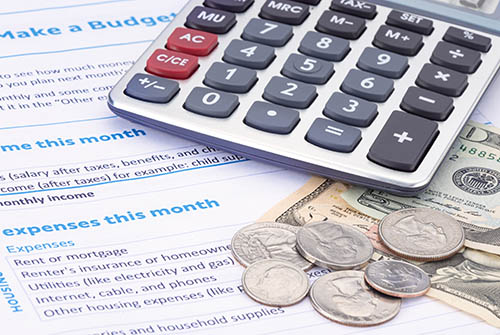 Housing news was boosted by the National Association of Home Builders Housing Market Index, which posted its highest readings since July of 2002. In other news, the Federal Reserve’s Federal Open Market Committee voted to raise the federal funds rate and Fed Chair Janet Yellen gave a press conference. Mortgage rates rose and weekly jobless claims fell.
Housing news was boosted by the National Association of Home Builders Housing Market Index, which posted its highest readings since July of 2002. In other news, the Federal Reserve’s Federal Open Market Committee voted to raise the federal funds rate and Fed Chair Janet Yellen gave a press conference. Mortgage rates rose and weekly jobless claims fell.
Home Builder Confidence Highest in 14 Years, Home Construction Lags
According to the National Association of Home Builders, builder confidence in housing market conditions reached its highest rate since 2002 in December. The NAHB Housing Market Index reading topped out at 70 as compared to November’s reading of 63. Analysts said that December’s high reading resulted from a post-election bump in builder confidence. While high builder confidence could bode well for supplies of new homes, construction rates continued to lag strong economic indicators such as low unemployment and high demand for homes. While builders gained confidence in current and projected housing market conditions, they continued to face shortages of labor and buildable lots.
Fed Raises Rate
The Federal Open Market Committee of the Federal Reserve announced it would raise the federal funds range by 0.25 percent to 0.50 to 0.75 percent. FOMC said strengthening job markets, lower unemployment and rising household spending supported the decision to raise the federal funds rate. Inflation, while below the Fed’s target of 2.00 percent, is gradually moving toward the Fed’s medium term goal. FOMC’s statement indicated that the Fed’s monetary policy would remain accommodative.
Fed Chair Janet Yellen held a press conference and cited “considerable progress” toward the Fed’s dual mandate of maximum employment and price stability as factors supporting the decision to raise the target federal funds range. Labor markets continue to improve; Chair Yellen said that the economy has added 180,000 jobs per month over the last three months. 15 million jobs have been added in the past seven years. Inflation is growing gradually, and the Fed expects to achieve its target inflation rate of 2.00 percent over the next two years.
Month-to-month consumer spending readings held steady at 0.20 percent growth. Core consumer price index data, which excludes volatile food and energy sectors, rose from 0.10 percent to 0.20 percent in November.
Mortgage Rates, Weekly Jobless Claims
Mortgage rates were higher last week, but Freddie Mac said that its survey data was collected before FOMC raised the federal funds rate. Analysts at Freddie Mac suggested a wait-and see position on rate forecasts due to the changing political climate. The average rate for a 30-year fixed rate mortgage was three basis points higher at 4.16 percent; the average rate for a 15-year fixed rate mortgage rose one basis point to 2.37 percent and the average rate for a 5/1 adjustable rate mortgage was two basis points higher at 3.19 percent. Average discount points for fixed rate mortgages held steady at 0.50 percent and dipped to 0.40 percent for a 5/1 adjustable rate mortgage.
New jobless claims were lower last week at 254,000 claims filed. Analysts had expected a reading of 250,000 new claims based on the prior week’s reading of 258,000 new claims filed. Volatility in weekly readings for new jobless claims can be expected due to seasonal hiring and layoffs.
What‘s Ahead
Next week’s economic releases include readings on new and previously-owned home sales, inflation and consumer sentiment. Readings for mortgage rates and new jobless claims will also be released.
 There are so many things involved in moving into a new home in a different neighborhood that it can be easy to forget about the proximity of many nearby amenities. However, if you have children, the local schools available can make-or-break the decision on whether or not to invest in a house. If you’re wondering how you can find out more about the local school, let the following tips be your guide.
There are so many things involved in moving into a new home in a different neighborhood that it can be easy to forget about the proximity of many nearby amenities. However, if you have children, the local schools available can make-or-break the decision on whether or not to invest in a house. If you’re wondering how you can find out more about the local school, let the following tips be your guide. An open house is one of the best opportunities a potential homeowner will have to take stock of a home and determine if it will work for them. However, it can also be a good opportunity to discover some glaring red flags that might make it a less worthwhile investment. If you’re currently perusing the open houses in your neighborhood, here’s some things you should make sure to watch out for.
An open house is one of the best opportunities a potential homeowner will have to take stock of a home and determine if it will work for them. However, it can also be a good opportunity to discover some glaring red flags that might make it a less worthwhile investment. If you’re currently perusing the open houses in your neighborhood, here’s some things you should make sure to watch out for. Curb appeal, or how your home looks from the street, is an essential part of preparing to sell your house. It’s also where comparison with your neighbors’ homes is inescapable which poses a problem if you’re both on the market. Read on for five ways to boost your own curb appeal.
Curb appeal, or how your home looks from the street, is an essential part of preparing to sell your house. It’s also where comparison with your neighbors’ homes is inescapable which poses a problem if you’re both on the market. Read on for five ways to boost your own curb appeal. Whether you’re moving to a new home or you have a new family pet, it can be a struggle to make the place a little friendlier for them. From the garbage can to the cupboards and doors, there can be a lot of dangers that have the ability to hurt your furry friend you might not be aware of. If you’re looking for some simple ways to make their life a little easier, here are a few things you can do.
Whether you’re moving to a new home or you have a new family pet, it can be a struggle to make the place a little friendlier for them. From the garbage can to the cupboards and doors, there can be a lot of dangers that have the ability to hurt your furry friend you might not be aware of. If you’re looking for some simple ways to make their life a little easier, here are a few things you can do. As 2017 winds down, analysts are forecasting economic developments for 2017. Forbes identified three indicators that the U.S. housing market has recovered. Mortgage rates rose again last week; jobless claims fell and consumer sentiment jumped rose five points. The details:
As 2017 winds down, analysts are forecasting economic developments for 2017. Forbes identified three indicators that the U.S. housing market has recovered. Mortgage rates rose again last week; jobless claims fell and consumer sentiment jumped rose five points. The details: Most homeowners look at their monthly mortgage payment as their largest cost per month, and something they must do to maintain a good credit history. However, you may have heard of bi-weekly mortgage payments and their ability to lower your debt load and help you pay off your mortgage more quickly. If you’re wondering if bi-weekly payments are too good to be true, here’s some information worth consideration.
Most homeowners look at their monthly mortgage payment as their largest cost per month, and something they must do to maintain a good credit history. However, you may have heard of bi-weekly mortgage payments and their ability to lower your debt load and help you pay off your mortgage more quickly. If you’re wondering if bi-weekly payments are too good to be true, here’s some information worth consideration. It’s easy for buyers to fall in love with properties when they’re looking at polished hardwood floors, new appliances or renovated kitchens. During open houses and showings, glamorous features get all the attention. However, these dream homes right away can be dangerous.
It’s easy for buyers to fall in love with properties when they’re looking at polished hardwood floors, new appliances or renovated kitchens. During open houses and showings, glamorous features get all the attention. However, these dream homes right away can be dangerous. From the approaching holiday season to the New Year, there are a lot of things to prepare for when it comes to the winter. It’s important, though, not to forget about the needs of your lawn for the upcoming cold season. If you’re wondering how to ready your trees, your plants and your yard, here are some tips for saving your vegetation until the springtime.
From the approaching holiday season to the New Year, there are a lot of things to prepare for when it comes to the winter. It’s important, though, not to forget about the needs of your lawn for the upcoming cold season. If you’re wondering how to ready your trees, your plants and your yard, here are some tips for saving your vegetation until the springtime. Buying a home is a significant expense. It doesn’t matter whether you’re a first-time buyer or have experience. Unless you have a large pile of cash, you’ll need to ensure your finances are in order before closing. In this post we’ll explore four financial items you’ll want to check off before buying a new home.
Buying a home is a significant expense. It doesn’t matter whether you’re a first-time buyer or have experience. Unless you have a large pile of cash, you’ll need to ensure your finances are in order before closing. In this post we’ll explore four financial items you’ll want to check off before buying a new home.